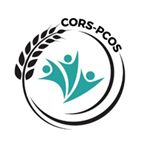Ongoing Research
Dr. Kelly Allison
Overview: POWERS (Physiology Of the WEight Reduced State) is a national research study funded by the NIH. The study involves a behavioral weight loss intervention at Drexel University, a weight-stable period, and an observational phase. Participants will monitor their weight at home with an internet-connected scale and come to Penn Medicine for 6 assessment visits involving physiological and behavioral testing.
Who is eligible?
You are eligible if you:
- Are between the ages of 25-60
- Do not have Type 1 or Type 2 diabetes
- Have a BMI between 30- <40 kg/m2
- Would like the opportunity to participate in a weight loss intervention study
For more information go to https://www.powers-study.org/ or read below!
What does the study involve?
Phase 1:
- Screening and informed consent including some biomedical measures
- An overnight hospital visit where you will complete physiological and behavioral tests
- 20-week behavioral weight loss intervention
- Lose approximately 7% of your current weight
- Weekly meetings, daily food logs and activity measurement, meal replacements
Weight stabilization:
- Once weight loss ends, remain at your reduced weight for two weeks prior to your second assessment
- Another overnight hospital visit with physiological and behavioral tests
Phase 2:
- 12 months of weight maintenance
- Behavioral weight loss intervention ends. Weekly weight and activity monitoring and monthly food recalls are done at home or over Zoom.
- Two more overnight hospital visits at months 4 and 12 with physiological and behavioral tests
Interested? Go to https://www.powers-study.org/
Dr. Kelly Allison
Research Study for Individuals with PCOS: The CORS-PCOS StudyDrs. Anuja Dokras, Sunni Mumford, and Kelly Allison

Dr. Anuja Dokras and the PCOS Center at the University of Pennsylvania are running a research study for individuals with polycystic ovarian syndrome (PCOS) who are between the ages of 18 -and 40 and have a BMI of 25 to 48.
The research study is being conducted to see if a dietary fiber supplement when combined with oral contraceptive pills (OCPs) can improve risk factors for heart health and the underlying cardiovascular disease such as cholesterol levels in women with overweight or obesity and Polycystic Ovary Syndrome (PCOS).
The study will take place for 12 weeks and compare a group of PCOS patients that get the fiber supplement to a group who get a placebo (a harmless powder that contains no dietary fiber). If you agree to join the study the research team will collect information about your medical and gynecological history, have exams and transvaginal ultrasound, and have you fill out questionnaires, collect fasting blood samples, complete food diaries, and complete an oral glucose tolerance test. You will be prescribed OCPs and be randomized to either a dietary fiber supplement or to a placebo for 12 weeks.
Study participants must:
- Be between 18-40 years of age
- Have a diagnosis of PCOS
- Have a BMI of 25-48
Study involvement may include:
- Frequent clinic visits
- Use of a dietary fiber supplement or placebo
- Use of oral contraceptive pills
- Compensation for time and travel
For more information and to complete a prescreening survey click here or call the study team at (215) 662-7727.
Dr. Thomas Wadden
The Center for Weight & Eating Disorders has participated in multiple randomized controlled trials (RCTs) in the past that have investigated several experimental medications for weight management including glucagon-like peptide-1 medications (GLP-1). Some of these include: liraglutide 3.0mg (Saxenda), semaglutide 2.4mg (Wegovy), and tirzepatide 10-15mg (Zepbound).
These are typically trials comparing experimental medications with a placebo. All of these trials included lifestyle nutrition counseling with a registered dietitian in the past.
If you would like to be notified of upcoming studies using weight loss medications, please call: Sharon Leonard, RD at 215-746-7198 or email: lesharon@pennmedicine.upenn.edu.
Back to Top
